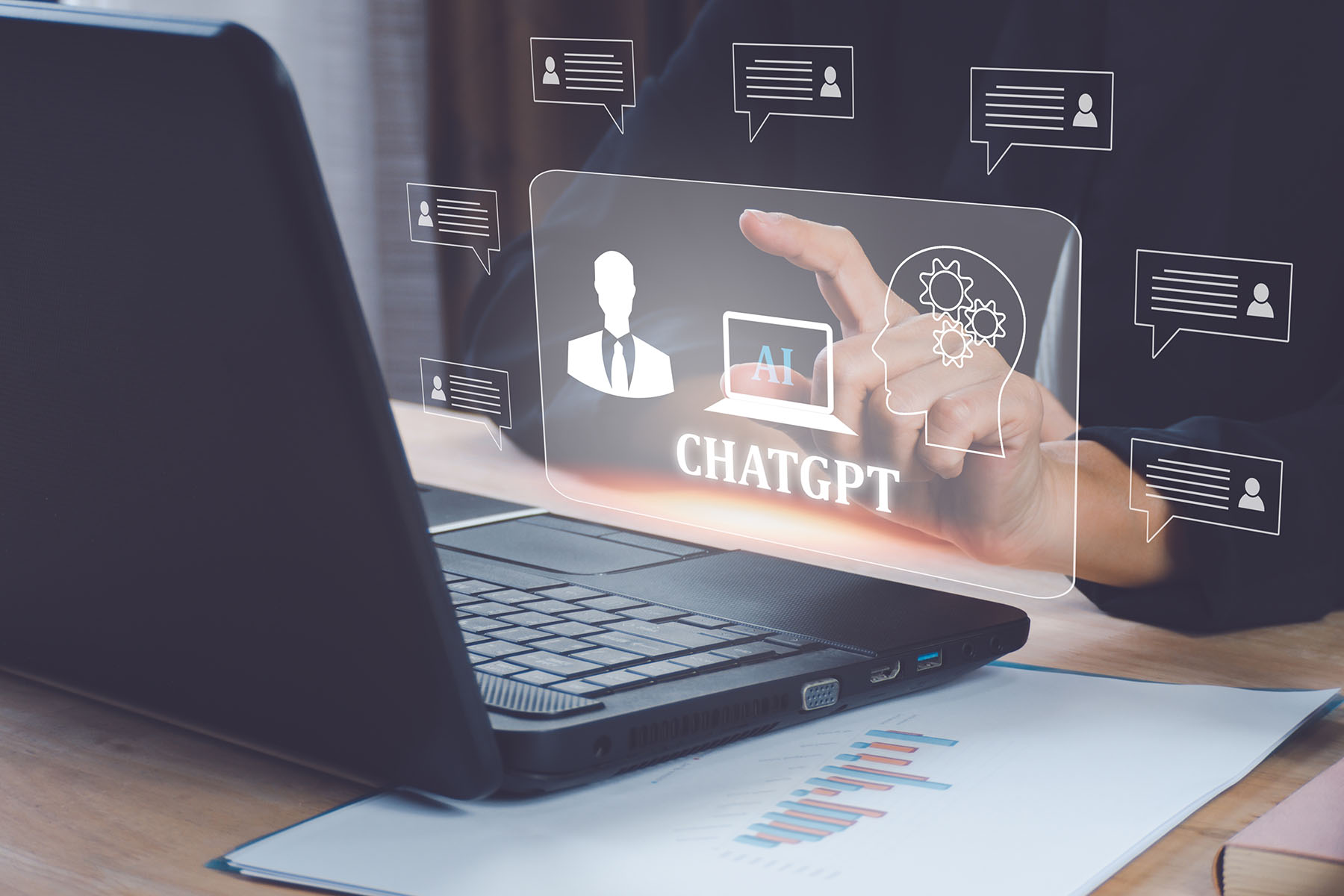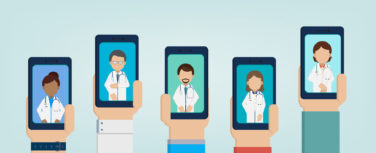ChatGPT is poised to revolutionize the pharmaceutical industry by providing innovative communication and marketing strategies.
With the assistance of AI tools, pharma marketers can develop personalized sales messages and educational content, improving their engagement with healthcare providers and equipping them to deliver better patient care. ChatGPT’s natural language processing (NLP) technology enables human-like conversations combined with the analysis of vast quantities of data, allowing pharmaceutical companies to curate targeted messages, promotional content, and educational materials.
Gone are the days of vague marketing messages such as “Ask your doctor if this is right for you.” With AI-powered chatbots and services, patients can access the information they need more efficiently. At the same time, pharma marketers can implement AI technology within their communication tools, especially when using communication-platform-as-a-service (CPaaS), to provide customized recommendations and better inform healthcare providers.
Enriching Real-Time Communication
AI-powered chatbots can help pharma marketers offer healthcare practitioners guidance on products and to make informed decisions about medications for their patients. With the capability to analyze a patient’s medical history and symptoms in real time, the chatbot can offer instant and personalized recommendations, ultimately streamlining the medication selection process.
And it’s not just healthcare providers who benefit; patients will no longer rely solely on doctors for medication-related queries. They can communicate directly with pharmaceutical providers using AI-enabled chatbots and assistants through websites and other communication channels to provide faster, 24/7 support to answer frequently asked questions.
Integrating AI-powered CPaaS technology into the pharmacy experience can alleviate the time-consuming process of waiting in long queues to ask questions about medication. With the help of AI-powered chat, patients can receive quick and accurate answers to their queries, allowing pharmacists to focus on more complex issues and improving overall patient care.
The Value of the Human in the Loop
It’s important to remember the value of “human in the loop” when adopting AI tools, especially when considering the specific needs of industries such as healthcare. Integrating AI tools with communication between parties can lead to better results when used correctly. These tools offer automatic transcription of meetings, creation of action points, and summarization and analysis of questions and concerns. Shared information can help with the identification of potential issues and pitfalls. Combining AI with communication systems that can connect the right people to one another in a text chat or video call will enable better information processing and decision-making.
Personalized and Targeted Marketing
With the help of AI, pharma marketers can build stronger relationships with healthcare providers by delivering valuable content tailored to their interests and needs.
Using ChatGPT, pharma marketers can create personalized messaging for healthcare providers. For example, a healthcare provider who has recently shown interest in a particular medication could receive helpful tips and suggestions for managing their patients’ conditions. This level of personalization can help pharma companies establish credibility and a positive relationship with healthcare providers.
Pharmaceutical marketers can also use AI tools like ChatGPT to conduct market research and better determine customers preferences and opinions as well as gather valuable feedback on products and services. This can inform the marketer so they better understand the needs of their customer community and allow them to improve their marketing strategies and offerings accordingly.
Improved Sales
By utilizing real-time chat, audio, and video communication, pharma marketers can establish a stronger connection with healthcare providers, leading to improved sales. Using NLP algorithms, ChatGPT can quickly and accurately analyze large amounts of customer feedback and sentiment from social media posts, comment sections, and online reviews. This capability allows pharma marketers to gain valuable insight into specific healthcare needs. If the AI detects a common trend of concerns about the side effects of a particular medication, pharma marketers could curate targeted messaging addressing those worries, highlighting the drug’s benefits if appropriate.
Analyzing customer sentiment and feedback also helps identify emerging trends in the market, including new treatment options that can inform product development, marketing campaigns, and sales strategies. Recognizing these trends and anticipating future demands ensures pharma marketers can stay ahead of the competition, ultimately leading to increased growth and revenue.
Consistent Content Creation
Staying up to date with the latest medical research and articles is crucial for healthcare providers. Still, it can be overwhelming due to the ever-increasing amounts of information available. A study published in the Journal of Internal Medicine highlighted that primary care providers would need to practice medicine for nearly 27 hours a day to keep up with the latest guidelines—a task that is virtually impossible for most practitioners.
To alleviate this problem, ChatGPT can assist pharma marketers in summarizing current medical research and articles in a clear and concise manner. Access to this content can save healthcare providers time.
Maximizing the Potential of NLP in Pharma Marketing
Although ChatGPT offers numerous advantages for pharma marketers by customizing, automating, and simplifying procedures, it can still generate inaccurate data and has encountered glitches that have emphasized the need for increased security measures. Healthcare providers and pharma marketers should not provide ChatGPT or other AI models with confidential patient information without effective controls and safeguards.
Pharma companies are taking steps to address concerns about patient data and accuracy in models such as ChatGPT. One solution is to use clinical NLPs, instead of ChatGPT, in a secure installation that prevents sensitive data from being shared outside the organization. This ensures that AI-assisted communication between healthcare providers and pharma marketers remains protected.
It’s important to recognize that ChatGPT is still a relatively new technology and, like all large language models, needs time to improve as it receives feedback from humans. As with any evolving technology, it’s expected that ChatGPT will be enhanced by more accurate, faster, and more versatile AI advancements in the future.
Although ChatGPT is currently a leader, new AI models may emerge with even greater capabilities. In addition, specific variants of ChatGPT are now being created. BioGPT, a language model specifically designed to analyze biomedical data, is an example of this happening in real time. BioGPT has become the preferred model for those in the medical field because it has been trained with specific medical data, resulting in higher accuracy and specificity when processing biomedical text. For pharma marketers, this means BioGPT’s more specific training will help to provide more precise and trustworthy information.
As language models continue to advance and become more secure, pharma marketers can anticipate access to even more sophisticated AI tools and applications. They will have the capability to analyze patient data, combine it with public data, integrate other AI tools, and leverage data from external sources to gain a more comprehensive understanding of a patient’s context. As ChatGPT and other AI technologies continue to develop, their enhanced capability has the potential to revolutionize marketing strategies in the pharmaceutical industry.









